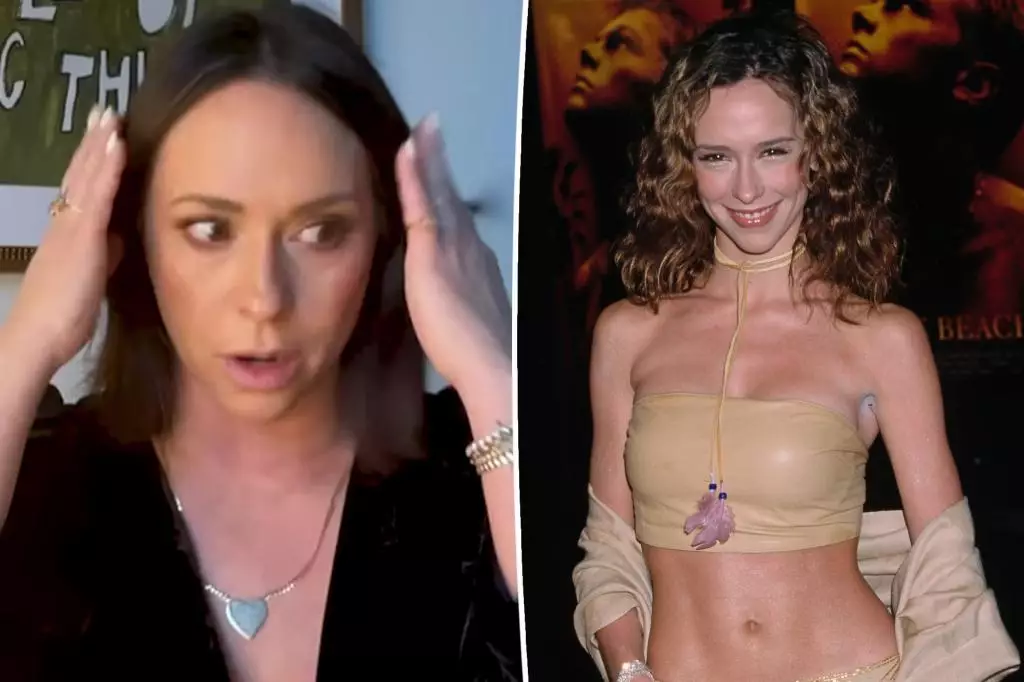Jennifer Love Hewitt’s recent revelations on Mayim Bialik’s “Breakdown” podcast reveal the complexities of growing up in the spotlight, especially for young women in an industry often quick to sexualize them. At the age of 45, Hewitt revisits her experiences from when she first entered Hollywood as a teenager, highlighting how societal norms have shifted since those days. The actress candidly reflected on the discomfort she felt when grown men made jokes about her body, specifically her breasts, while she was still a minor. This stark contrast between her past and present portrays how the entertainment culture, even as it increasingly advocates for body positivity and consent, has a long way to go.
Hewitt recounted instances where men, entirely too old to be quantifying her worth or desirability, made suggestive remarks about her body on various platforms, pointing to a broader acceptance of objectification in pop culture at the time. She poignantly noted, “It was a culture that was fully accepted,” indicating that not only was this behavior normalized, but it also went unchecked, leaving young women like her vulnerable to unsolicited opinions and judgments about their bodies.
For many young actresses, the transition from innocent teen roles to becoming a sexualized figure happens abruptly and without warning. Hewitt’s experience paints a powerful picture of this transformation. She expressed disbelief at being labeled a “sex symbol” before she genuinely understood what that entailed, revealing an unsettling truth about the expectations placed on young women. “I didn’t know what being sexy meant,” she recalled, shedding light on how society often imposes premature sexual identities on girls who are still just trying to navigate their adolescence.
The reminiscing actress also cited specific instances where men approached her to comment on her 1999 Maxim cover when she was only 17, branding these interactions as inappropriate and unsettling. Her innocent laughter in response to these comments reflects a coping mechanism common among young women faced with objectification: disarm the situation with humor to keep uncomfortable realities at bay. However, as she pointed out retrospectively, such interactions were “kind of gross,” revealing how the normalization of such remarks can impact a young person’s self-esteem.
Hewitt’s account shines a light on another fierce challenge: managing body image under the public eye. As a young actress whose physical attributes became a focal point of media discussion, she found herself wrestling with mixed feelings about her body, often attempting to downplay her curves in an environment where they were celebrated for laughter rather than talent. “I had bigger boobs for a smaller person, and so it was embarrassing,” she admitted, revealing a poignant reality that many women share. It speaks volumes about the mental toll that constant scrutiny can take, forcing individuals to alter their appearances or hide their figures to become more palatable to societal expectations.
Hewitt’s frustration reached a peak when her work in significant projects like “I Know What You Did Last Summer” became overshadowed by an obsession with her physical appearance rather than her acting skills. She desired recognition for her performance, but the conversation continually veered back to the superficial. “It was always about my breasts, always first,” she lamented, capturing the exhausting cycle of objectification that so many actresses before and after her have faced.
Ultimately, Hewitt doesn’t lay blame for these past actions solely on individuals who made inappropriate comments at the time. Her acknowledgment of a broader cultural acceptance of such behavior illustrates an essential nuance in her reflection. As she stated, “They were allowed to believe that that was appropriate,” emphasizing the collective responsibility of society to evolve its standards of respect, especially toward women.
Jennifer Love Hewitt’s candid reflections provide a critical glimpse into the challenges faced by young women in Hollywood and the necessity of encouraging a healthier, more respectful dialogue around female identity and sexuality. As we move forward, it is crucial to analyze the past, learn from it, and create a culture that prioritizes individuals’ achievements and talents over their physical appearances.

Leave a Reply